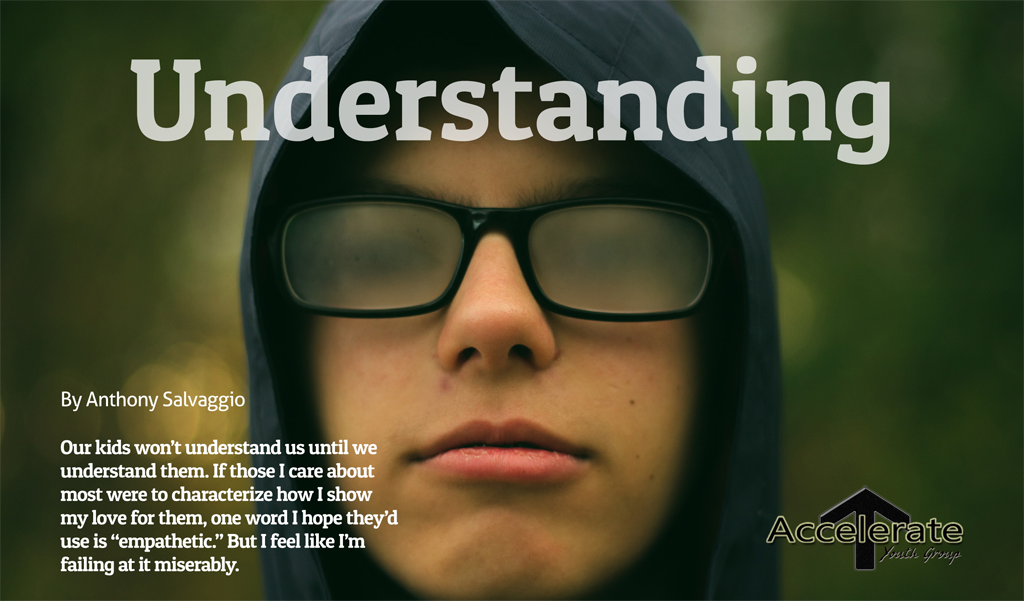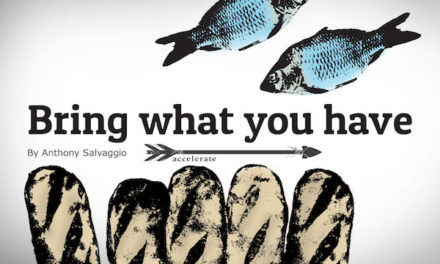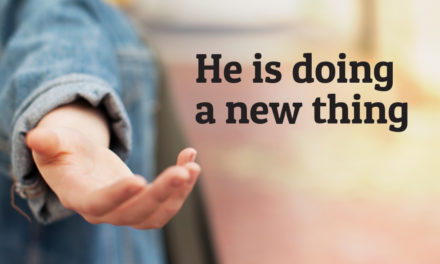Our kids won’t understand us until we understand them.
If those I care about most were to characterize how I show my love for them, one word I hope they’d use is “empathetic.” But I feel like I’m failing at it miserably.
Parenting is far better when we journey with our child instead of judge them.
So is marriage. And work. And friendship. And pretty much every other relationship—both personal and professional. I find myself thinking about empathy all the time, and praying that God will give me more empathy—for my neighbor, my supervisor, and my family.
There’s a belief behind every behavior. If I can’t fathom my child’s behavior than I haven’t faced all they are navigating. In every conversation and interaction, I want to seek to understand before I seek to be understood.
It’s impossible for me to empathize with those I care about most if I’m…
1. Thinking “How dare they” (or the equivalent).
By definition, if I’m thinking “How could he…” or “How dare she…” then I’m failing to empathize, or feel with that other person. If I can’t fathom what they’ve done, then I haven’t yet put myself in their shoes. We are told in Mark 12:31, “Love your neighbor as yourself.” How much closer than a neighbor is your spouse, child, or other family member? We must be empathetic to all. The Apostle Paul tells us in 1 Corinthians 9:22: “To the weak I became weak, to win the weak. I have become all things to all people so that by all possible means I might save some.”
2. Focusing more on my own wants and needs than theirs.
Often our conversations with others (not just our children) are tainted by what we long for out of the conversation—connection, recognition, and validation. In the case of our children, what we lose sight of is what they long for: to have a parent who understands the pressures they navigate day after day. The pressures of dealing with school work, their self image, relationships, and much more. Jesus tells us in Mark 9:35 “Anyone who wants to be first must be the very last, and the servant of all.” As a servant we must always put the needs of others above our own.
3. Frustrated.
Anger and empathy cannot coexist. If we come into a conversation or situation with frustration and we are displaying it physically or verbally it’s going to be nearly impossible to empathize with the other person. So if you are frustrated, before you go and send that text or engage that other person, pause, put it in the “draft box” and pray. Ask God to see things His way, to have a heart and love for that person the way He does. If you want to love someone more, have more understanding and empathy for them, then pray for them! I promise if you pray for someone God will soften your heart towards them. This does not mean, however, we cannot discipline, be direct, or share the truth with love and grace if something has been done wrong or if there is sin involved. But Paul tells us in Romans 2:4 that it is God’s kindness, His love, that leads us to repentance, that is, to change our inner self, our old way of thinking, to seek His purpose for our life.
Here is a powerful idea: My teenagers likely won’t understand me until they know I’ve understood them.
There is a quote I love: “People won’t care what you know till they know that you care.” – Maya Angelou
This quote is valid for all people, but as a parent it holds a very high value in our relationships with our children. The best way we can show others that we care, that we love them, is to listen to them and to try and understand where they are coming from.






